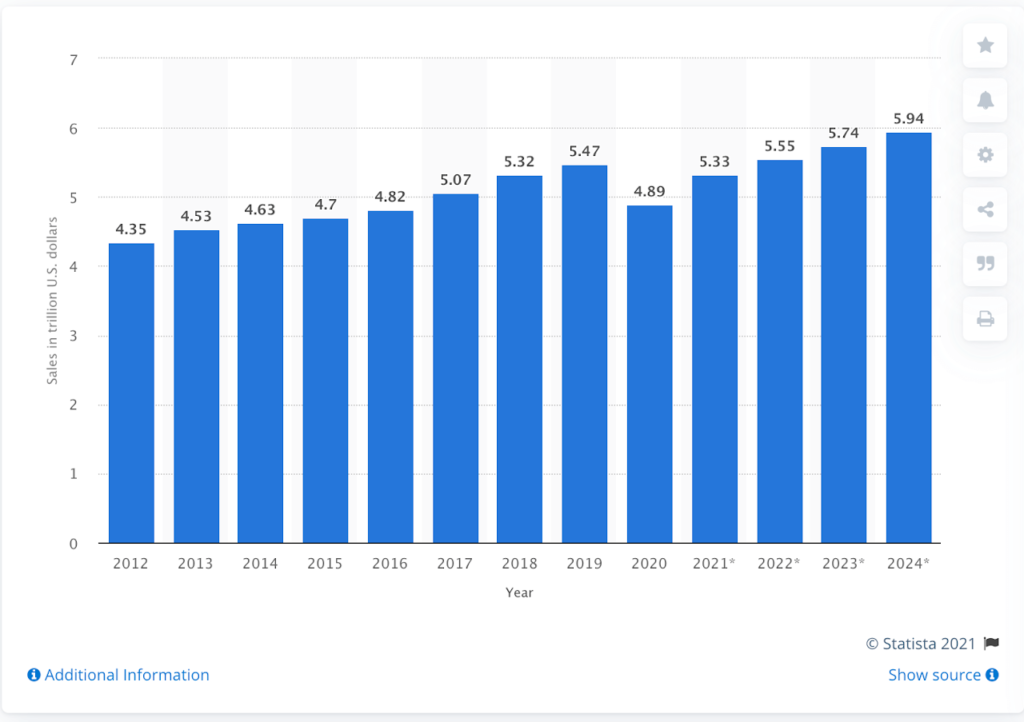Private labeling
You don’t have to invest in product development to start selling products online. In fact, there are many e-commerce business models that allow you to sell merchandise without ever even touching the products themselves.
Private labeling is one such business model. With private labeling, you work with a third-party manufacturer to create your own custom branded products. Private labeling is great for people and brands that already have established audiences and want to find a way to start generating passive income online via product sales.

WHAT IS PRIVATE LABELING AND HOW DOES IT WORK?
Private label products, similar to white label products, are goods created by one company to be sold and branded by another company. A business owner selling private label products is looking for a product they can put their own brand name on and sell as if it’s their own. Clothing and cosmetics are common private label products, as are condiments sold in grocery stores.
Total retail sales in the US for private label products hit $5.47 trillion in 2019 and are projected to hit $5.94 trillion in 2024, according to data from Statista. That’s no surprise, considering you see private label products in most major retail stores.

Image source: Statista
Advantages of private labeling
Private labeling has a number of advantages that span beyond simplifying the product development process. Some of those advantages include:
- Control over production. You direct third-party manufacturers in terms of materials and ingredients, quality, and production rate.
- Control over pricing. As the seller, you determine your pricing strategy and have control over how you optimize production costs, which helps with creating a healthy profit margin.
- Adaptability. Smaller retailers can move quickly to get a private label product in response to rising market demand for a new feature, while larger companies might not pursue a niche product.
- Control over marketing and branding. You choose how to promote and package private label products before making them available for sale.
Disadvantages of private labeling
While there are many benefits to private labeling, it doesn’t come without its challenges:
- Manufacturer dependency. Because a third-party manufacturer handles production, you’re largely at their mercy. That’s why it’s so important to find a reputable and reliable manufacturer to work with.
- Difficulty building loyalty. It can take time to get traction when starting a brand from scratch. This is one reason why private label products are great for people and brand names who already have an established audience that trusts them.
- Poor consumer perception. Private label products commonly have a reputation for being cheap or low quality. However, that perception is changing. Many consumers around the world believe the quality of private label products is improving.